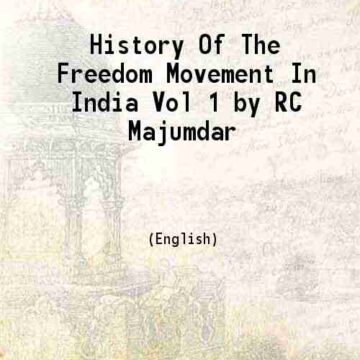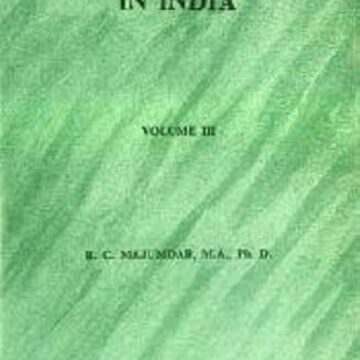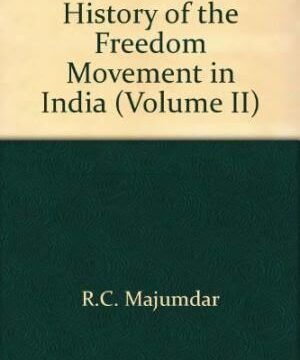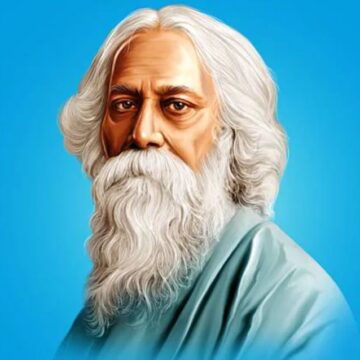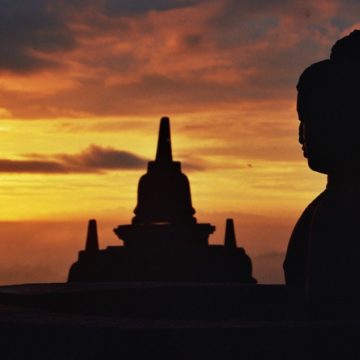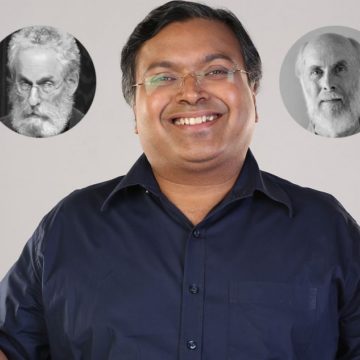Dr Pingali Gopal uses R. C. Mazumdar's book "History of the Freedom Movement in India" as reference to evoke interest in the truth behind the popularised version of the history of India's independence.
The last part of the series deals with the Quit India Movement, Subhash Chandra Bose's contribution to the cause, the partition of India and final moments of dotting the i's and crossing the t's before the transfer of power.
Tag: <span>Indian history</span>
Excerpts From History Of The Freedom Movement In India By R. C. Mazumdar – Criticism Of Gandhi – Part 5
Dr Pingali Gopal uses R. C. Mazumdar's book "History of the Freedom Movement in India" as reference to evoke interest in the truth behind the popularised version of the history of India's independence.
Part 5 is a critique of Gandhi - his political origins, his role in the freedom struggle, his multiple calls for mass movements, and his misses and blunders at multiple moments of high impact.
Excerpts From History Of The Freedom Movement In India By R. C. Mazumdar – The Ruthless English: Attitudes, Second World War, Churchill, and Mountbatten – Part 4
Dr Pingali Gopal uses R. C. Mazumdar's book "History of the Freedom Movement in India" as reference to evoke interest in the truth behind the popularised version of the history of India's independence.
Part 4 deals with the naked reality of the Raj in India - the avarice, the ruthlessness, and the cunning of the British in bleeding India dry; and ultimately their reluctance to exit or even to contain the spread of the wildfire that was religious hatred and crimes that ensued.
Excerpts From History Of The Freedom Movement In India By R. C. Mazumdar – The Muslim Politics – Part 3
The point Mazumdar repeatedly makes in his book is that the Muslim leaders were extremely clear on what they wanted. The Hindu leaders remained clouded and romantic, dreaming of a unity not simply existing in the minds and hearts of their Islamic counterparts.
The central idea of all the proposed alternatives was that the treatment of Muslims should not be as a minority community in Hindu India but as a separate nation with a distinct culture.
During this great metamorphosis of Muslim politics in India, neither the Congress nor the Hindu public men gave it the serious attention it deserved. They angrily opposed the idea of vivisection of India in any form and took their stand on the twin ideas of Indian nationality and Indian unity—the ideas that the Muslims rejected in almost one voice.
The Hindu leadership never belonged to the Hindus, and the Muslim leadership was devoted to nothing except Muslims and Islam.
Excerpts From History Of The Freedom Movement in India By R.C. Mazumdar – The Politics Of The Book – Part 2
Dr Pingali Gopal explores the goings on that led to the birth of R.C. Mazumdar's book "History of the Freedom Movement in India" as the author tries to bring to light the truth behind India's independence and tries to redefine what "foreign occupation" means.
The rest of this series is a summary and paraphrasing of the works of RC Mazumdar. The essays are directly from the book, without indication as such in all cases. The first-person component of the essays also belongs to Mazumdar. There are no extra elements or comments added to the text of Mazumdar except for some editing and slight additions to give clarity to the background context and to give a smoother flow to the topic under discussion. The aim is to give an overview of the freedom struggle from a different perspective.
History Of Freedom Movement: The View Of R.C. Mazumdar – Part 1
Dr Pingali Gopal uses R. C. Mazumdar's book "History of the Freedom Movement in India" as reference to evoke interest in the truth behind the popularised version of the history of India's independence.
India’s History: Part I, By Rabindranath Tagore
This is an English translation of the essay “Bharatbarsher Itihas” by Rabindranath Tagore, to be found in his anthology of Bengali essays entitled “Bharatavarsha”. The anthology contains several of Rabindranath’s longish essays concerning historical, cultural, and political dimensions of India, all written between 1901 and 1905, a period which can be described as the zenith of Bengal’s (and in turn, India’s) rebirth in the Modern Era. Each of these essays, though deeply embedded within the historical context of the author’s time and space, is largely relevant for all of India today.
Ask the Past
Ancient India's knowledge traditions were continuous & cumulative and it's a pity that young Indians know little of this vast intellectual heritage.
Ram Temple and the ‘Idea of India’
In this first of a two part interview, we speak with Dr Koenraad Elst about his areas of research, his books and his interest in Indian history, triggered by the politics around the Ram Temple in the late eighties.
A diversity of white saviours
By reducing the motives of those involved in debates on Indian history to racial prejudice, Devdutt Pattanaik lazily brushes aside the diversity in the politics of those engaged in the intellectual battle. Predictably, he turns out to be wrong on many counts.

